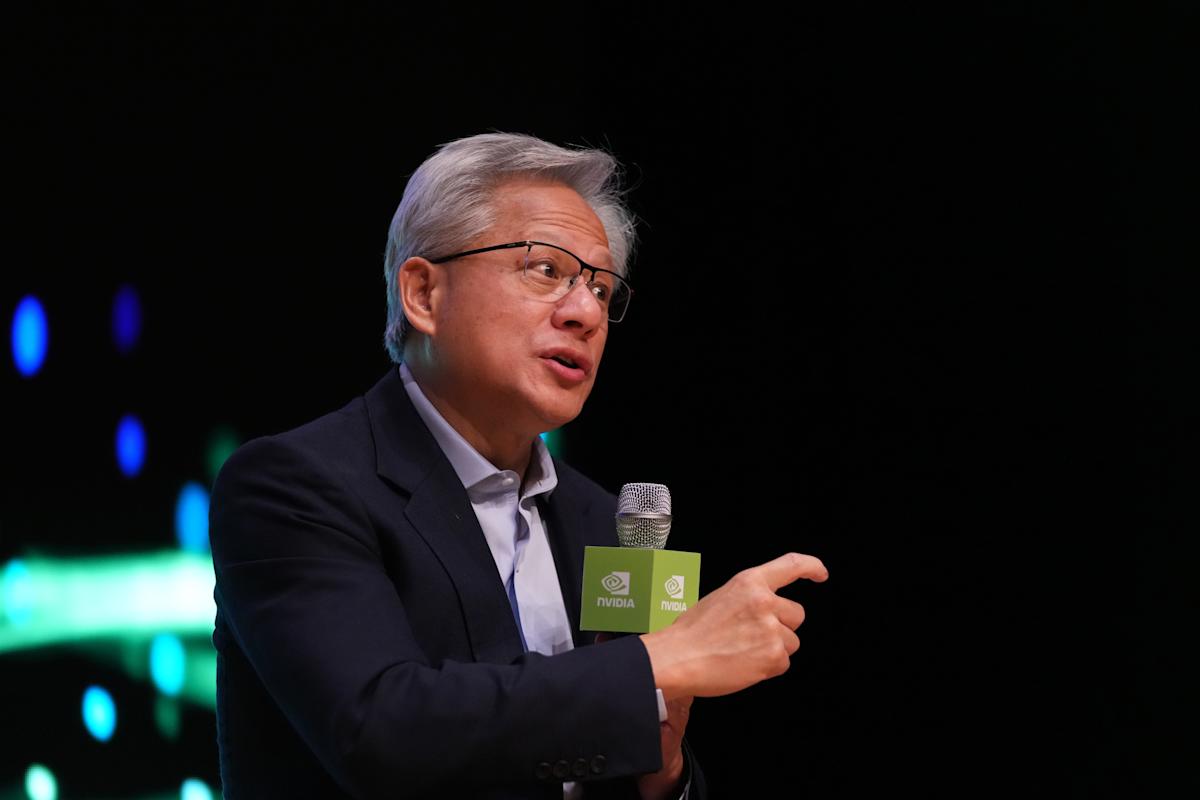Nvidia caps Mag 7 earnings with a dose of AI jitters
This is The Takeaway from today’s Morning Brief, which you can sign up to receive in your inbox every morning along with:
The scene at the AI party right now is a confusing one. At the same moment the industry’s loudest cheerleaders are insisting that the night is still young, some of the more influential partygoers are heading for the exits or have already left.
Take Nvidia (NVDA), which operates as a financial and cultural symbol of AI exuberance, but also, more concretely, as a linchpin for the AI transition and the tech industry at large.
Shares of the chipmaker are up nearly 40% for the year, but the recent wave of AI jitters has dragged the stock down by double digits from the highs of October. And high-profile investors, who retail traders look to as de facto influencers, have sold off their holdings. Financial disclosures this week showed that Peter Thiel’s hedge fund Thiel Macro sold its stake in Nvidia in the third quarter, emphasizing the collective unease rattling through AI-linked stock charts. (Remember, Thiel is a co-founder of Palantir, a company at the forefront of the AI trade along with Nvidia.)
Thiel wasn’t alone. Last week, SoftBank said it had sold its entire stake in Nvidia for close to $6 billion. While the cash will largely go to funding other AI ventures, the move didn’t help Nvidia’s standing.
The exits are important because, as traders look to the widely followed investors for guidance, they could advance the narrative of a wider AI pullback. There’s no need to overstate the case, though. That two notable funds unloaded their Nvidia shares is far from any kind of definitive blow. Even after absorbing the skittishness of recent weeks, Nvidia is still a $4.5 trillion company rather than a $5 trillion one.
A frazzled AI trade is still a lucrative play. But hedging, nuance, and ambiguity are seeping in.
The retreats arrived amid a broader reexamination of the AI trade defined by a heaping dose of skepticism. An array of billion-dollar deals captured headlines for weeks, and continues to. But their often circular nature, in which infrastructure providers invest in their customers, who then purchase more hardware from them, has ignited debate about risky entanglements, adding to the risk of an AI bubble.
That raises the stakes for Nvidia’s earnings later today.
“As a major S&P 500 constituent, its results will likely carry broader implications for business investment and AI-related spending trends,” said Jason Pride, chief of investment strategy and research at Glenmede, in a note.



Leave a Comment
Your email address will not be published. Required fields are marked *